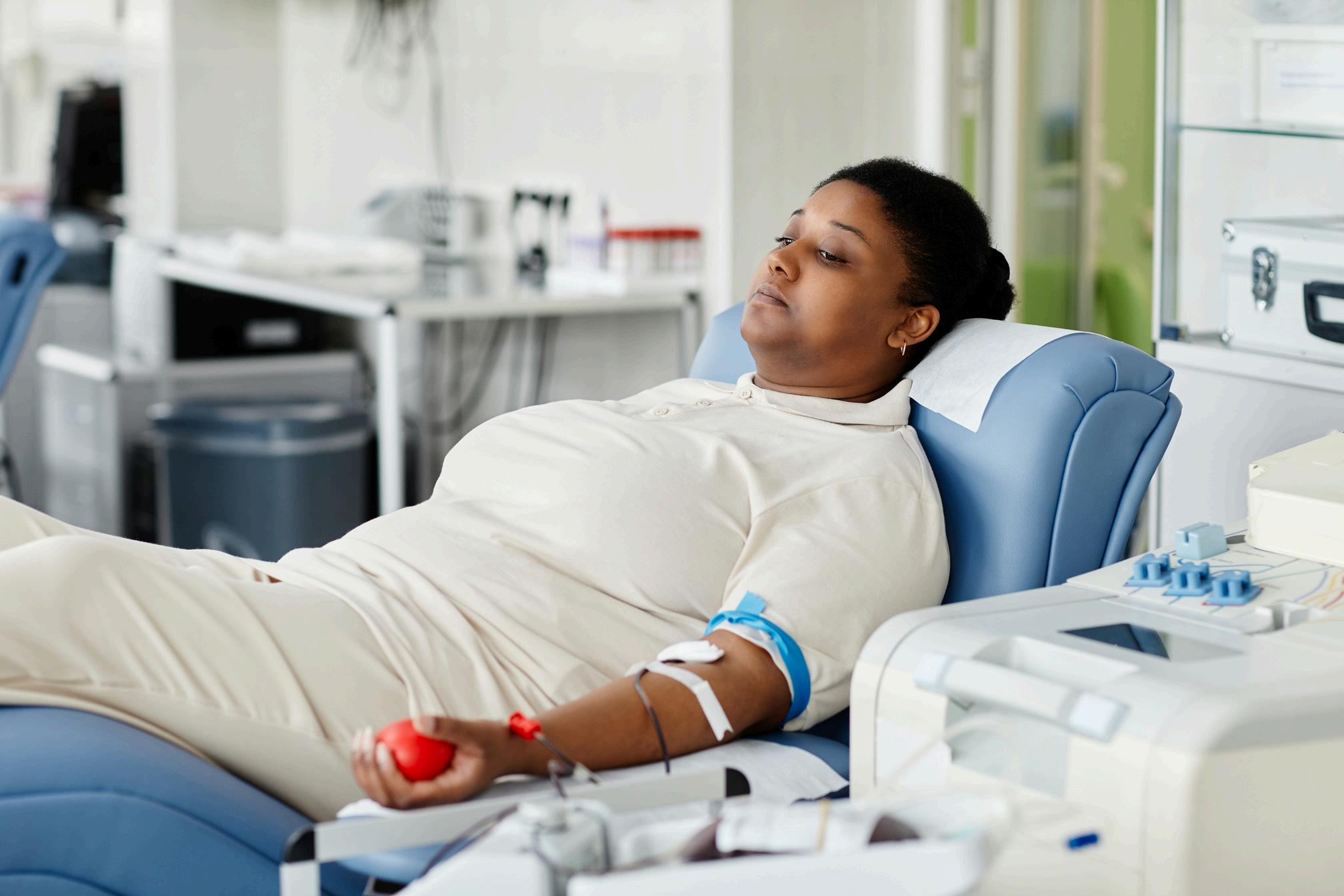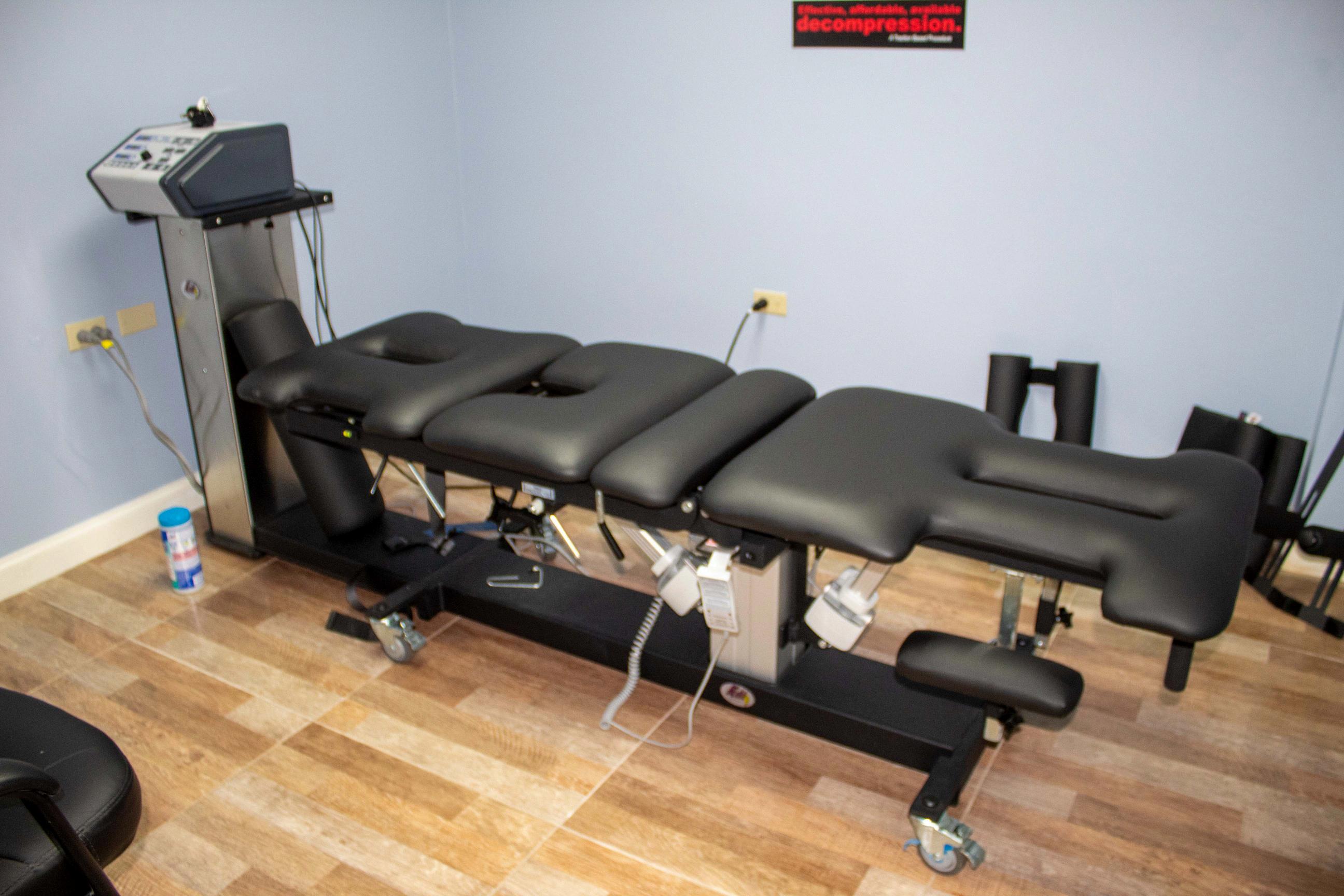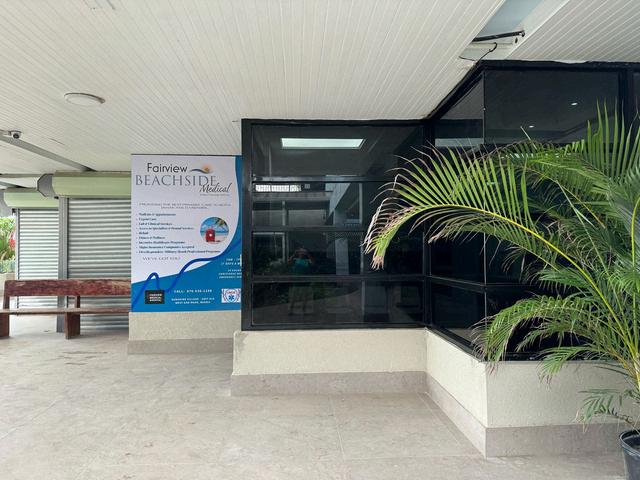








Welcome to our October/November 2024 edition! As we embrace the autumn season, we're excited to bring you diverse topics that reflect Jamaica’s place in the dynamic world of consumerism and beyond.
First and foremost, we'd like to acknowledge Breast Cancer Awareness Month. This annual campaign is a powerful reminder of the importance of early detection, support, and ongoing research. We encourage our readers to stay informed and consider ways to contribute to this vital cause.
In celebration of Jamaica's rich cultural heritage, we're thrilled to report that Dunn's River and Green Grotto Caves have won prestigious Experts' Choice Awards. These natural wonders continue to captivate visitors and showcase the island's breathtaking beauty. Adding to Jamaica's accolades, the country has been honored as the Caribbean's Best Culinary Destination, a testament to its vibrant and diverse gastronomy scene.
Turning our attention to technology, we're highlighting the importance of seniors embracing modern tech. Understanding all demographics in society is crucial, and this article offers valuable perspectives on engaging with older audiences in the digital space.
This month's featured article focuses on a topic close to every digital marketer's heart: the importance of building a mobile-responsive website. In an era where mobile devices dominate internet usage, ensuring your site is optimized for all screen sizes is no longer optional—it's essential. We dive deep into the benefits, best practices, and impact on user experience and SEO.
As always, we strive to bring you content that informs, inspires, and equips you with the tools to excel in the ever-evolving world of marketing. We hope this edition sparks new ideas and strategies for your professional journey.
Happy reading!
Warm Regards,
Paul Bauer EDITOR, THE MILLENNIAL MARKETER









Practice routine self-exams, 3-5 days after your period starts.



Know your risks and family history.

start getting mammograms at 40 & older. perform your self-test at the same time every month.

















TODONATEBLOOD YOUMUST:
OBEWITHINTHEAGES WF17-65YEARSEIGHMORETHAN(110POUNDS 50KGS.)
OBEWITHIN3HOURS FYOURLASTMEAL.
The Jamaica Business Development Corporation (JBDC) is optimistic that the Digital Jamaica Summit & Showcase hosted at The Jamaica Pegasus Hotel recently will offset some of the anxiety among micro, small, and medium-sized enterprises (MSMEs) as they seek to go digital with their operations. Hundreds of entrepreneurs demonstrated an interest when they participated in the event designed to kick-start the training component of the Digital Jamaica Project.
JBDC Chief Executive Officer Valerie Veira, while speaking during the opening ceremony, said, “There’ll be a little anxiety. And guess why I’m excited about that? It means that when you leave, you’re gonna say, ‘Hey, I need to get on this train fast, now.’ And that anxiety spurs action. As we say at JBDC, you move from panic to passion and just get it moving.”
Under the €9.5M Digital Jamaica Project, JBDC is committed to upskilling 2,700 MSMEs in digital technologies.
This initiative will support their digitization, digitalization, and overall digital transformation, making a significant impact on the Jamaican business landscape.
Veira added, “We’ve completed year one, where we were getting our tools right, designing the programmes, and sharpening all the pencils. Now, we’re launching year two. This is the exciting part where we actually go out. It’s field time. We go out into the field, providing hands-on support to our MSMEs. We’re getting into your businesses, conducting workshops, holding sensitization sessions, and delivering comprehensive training.”
The project seeks to build digital literacy and competency among MSMEs through a structured approach using education and support. This strategic initiative includes training, mentorship, and targeted campaigns. Senator Aubyn Hill, minister of industry, investment and commerce, urged MSMEs to embrace digital technologies to enhance their productivity.
“Productivity also increases when you bring technology in. To make sure you cut out some of those steps that you would have to do and make it a lot more efficient, you put innovation in there. That’s what this programme is about.”
A survey conducted by the JBDC reveals that a moderate 32.44% of respondents use digital technologies daily and understand their benefits well, indicating practical familiarity.

However, a notable 16.74% are still unaware of these benefits, and only 26.45% have heard about them, suggesting a need for increased education and awareness initiatives to bridge this knowledge gap.
The results from the JBDC’s survey are being used to guide the focus areas for the training. Through a panel discussion and several presentations, the event provided introductory information on digital technologies, including website development, e-commerce, digital payments, digital marketing, cybersecurity, data protection, financial management, team management, artificial intelligence, customer relationship management, trade, cloud computing, hardware, and software.
Several members of the Jamaica Technology and Digital Alliance were on hand to showcase their products and services, which are designed to offer MSMEs a seamless digital transition experience.
Attendees at the event were given the opportunity to pre-register for the upcoming training sessions. With the training set to be implemented over two fiscal years (2024-2026), the target for year one is 700 MSMEs. Approximately 600 persons have pre-registered.
Of note, the sessions will be limited to a maximum of 20 participants at a time. Registration will be ongoing, as the sessions are scheduled and announced. Persons may get more details on the project at www.jbdc.net.
The JBDC is the government’s premiere business development agency under the Ministry of Industry, Investment & Commerce.

























PROGRESSIVE FOODS: FAIRVIEW, WHITTER VILLAGE, OCHO RIOS & SOVEREIGN VILLAGE
THE BUTCHER BLOCK GOURMET STORE: UPPER MANOR PARK PLAZA
SHOPPERS FAIR: SUPER SHOPPERS FAIR - BOULEVARD, WESTGATE
FONTANA PHARMACY: BARBICAN SQUARE, WATERLOO SQUARE
S FOODS JAMAICA SUPERMARKET: WORTHINGTON AVE., KINGSTON
GENERAL FOODS: OCHO RIOS, LIGUANEA PLAZA
LFA COUNTRY STORE SUPERMARKET: RICHMOND, ST. ANN
MANOR PARK PHARMACY: CONSTANT SPRING RD., KINGSTON
BOOT GAS STATION: BOOT GREENWICH PARK, DRAX HALL
SOVEREIGN SUPERMARKET: HOPE ROAD, KINGSTON
BROOKLYN SUPERMARKET: HALFWAY TREE, KINGSTON
SUPER VALU FRESH FOODS: CONSTANT SPRING RD., KINGSTON
LOSHUSAN SUPERMARKET, KINGS HOUSE RD, KINGSTON
JOHN R. WONG: TOBAGO AVE, NEW KINGSTON
LEE’S FOOD FAIR: RED HILLS RD., KINGSTON
HI-LO FOOD STORES, BARBICAN RD.
FAMILY PRIDE: HAVENDALE
THE COLLECTIVE 876: MAIN STREET, ROSE HALL








Jamaica earned top honors at this year’s 5th annual World Culinary Awards, held in the United Arab Emirates on October 2nd. Voting online, the culinary community named Jamaica the Caribbean’s Best Culinary Destination of 2024 and Montego Bay the Caribbean’s Best Culinary City. This marks the 5th consecutive year Jamaica has been awarded Best Culinary Destination in the Caribbean.
“We are honored to be recognized as the Caribbean’s top culinary destination, and I am lucky to know firsthand why we are considered a culinary capital,” said Hon. Edmund Bartlett, Jamaica’s Minister of Tourism. “Through our strong linkages with our local farms and purveyors, we offer rich and varied flavors filled with influences from our culture and around the globe. One of our most popular dishes is ackee and saltfish, our national dish, and our fan-favorite jerk chicken. There’s also nothing like our fresh tropical fruits, Jamaican rum, and Blue Mountain coffee, and it’s warming to see that our cuisine is one of the reasons visitors return year after year.”
This award also marks the second consecutive year Montego Bay has been named the Caribbean’s Best Culinary City since the advent of this category in 2023.
Donovan White, Jamaica’s Director of Tourism, added, “In Mobay and beyond, our hardworking culinary professionals provide extraordinary dining experiences for locals and visitors alike, and we’re elated to see their dedication recognized globally.”

Over 450,000 Jamaicans in the National Health Fund (NHF) Card Programme can now access increased subsidies on medication used to treat 12 of the 22 conditions covered by the fund.
The fund said claimants of the HbA1c diagnostic test will also enjoy the increase in subsidies.
Impacted by the increases are epilepsy, glaucoma, rheumatic and ischaemic heart diseases, hypertension, sickle cell and thyroid diseases, diabetes, lupus, breast and prostate cancers, arthritis, and major depression — a total of 13 or 59% of the conditions covered by the NHF Card.
The boost in coverage is expected to cost the fund $269 million for the remainder of the financial year ending March 2025.
The subsidy adjustments come as the NHF seeks to raise its current average subsidy rate to 50%.
“As a part of our commitment to greater access for our beneficiaries, the NHF, through the Individual Benefits and Research Department, conducts an annual review of subsidies. This is done to determine the benefits' effectiveness and, through increases, enhance beneficiary dissatisfaction. We also aim to improve adherence by providing more affordable medication,” Chief Executive Officer, Everton Anderson explained.
In March of last year, the fund also announced a major subsidy adjustment on over 380 pharmaceutical items, which raised the average subsidy rate to 47%.
The NHF said it will continue to monitor the population's health needs to adjust the list of benefits covered and support the Ministry of Health & Wellness agenda in combating noncommunicable diseases.













Sagicor Bank Jamaica Limited (SBJ) has re-entered the prepaid card market with plans to capture a broader portion of the Jamaican retail market while converting more remittance users to digital payments.
Sagicor Bank previously had a prepaid Mastercard called the MyCash prepaid card, which was done in partnership with Prism, a Digicel subsidiary, between mid-2018 until May 2022. Two years later, SBJ has launched a new prepaid card, dubbed the Sagicor Bank Preferred Prepaid Mastercard, which went live on July 29. The new prepaid Mastercard is an EMV (Europay, Mastercard and Visa) chip-enabled card with contactless transaction features.
“The two key elements of the re-entry are around security and convenience. Sagicor is on a digital transformation journey right across the group. Some of it will play out in the public space in the form of a direct tangible product like this, as well as other elements where clients will just see that we’ve gotten more efficient because it’s being done on the back end as well,” said Sagicor Bank Senior Vice-President of Retail and Payments Damion Hylton, in an interview with the Jamaica Observer last Friday.
Unlike the prior prepaid card, which was split into three tiers based on certain KYC (Know Your Customer) documents and carried a $115 monthly fee, any individual can sign up on Sagicor Bank’s website with a valid Government-issued ID and their tax registration number (TRN) for the new prepaid card which carries no monthly fee. Individuals would then be able to collect the card at their preferred Sagicor Bank branch or Alliance Financial Services Limited (AFSL) location. A minimum of $500 would be needed to activate the card which would also be done online. The prepaid card has a $250,000 limit and has a daily transaction limit of $100,000 through ABMs, POS (point of sale) or for online transactions.
Hylton explained that the decision not to include a monthly fee was made to encourage transactions by users and ensure broad market appeal to a wide cross section of the populace. This was also meant to complement the remittance market who can decide how their remittances are allocated at 27 select Alliance financial locations where they can also collect the prepaid card.
“A lot of times when you’re collecting remittances, you may not want to have all of that cash walking around with. What we’ve allowed in this partnership is that you can load a portion of the cash to the prepaid card, as well as you can load all of it. We didn’t want to restrict it to individuals just loading all the proceeds for the simple reason that we try to be realistic in how we deploy the product,” Hylton added on the ability for persons to receive remittances through AFSL.

Users will be able to manage the card and associated funds using Sagicor Bank’s online eBank platform. Although depositing cash to the prepaid card at a Sagicor Bank branch will attract a $172-fee, users can also do online transfers from a Sagicor Bank account which carries no fee. Hylton even noted that the possibility exists for users to do a bank transfer from another bank to the card by using the card number as the account number in that transfer.
Sagicor Bank’s move to re-enter the prepaid card market comes at a time when several other remittance providers are seeking to convert their clients from receiving cash to accepting it digitally and spending it using their card offering. JMMB Money Transfer Limited launched its prepaid Visa prepaid card earlier this year, which also allows its clients to receive remittances and make transactions using EMV technology. Both Alliance Financial Services and JMMB Money Transfer use MoneyGram as a global remittance partner.
GraceKennedy Remittance Services Limited launched its prepaid Visa debit card in December 2022 to not only receive remittances but also become a key integration in GK Financial Group’s offerings to its wide customer base. GK is the exclusive Jamaican partner for Western Union, the main global remittance company used in Jamaica.
Lasco Financial Services Limited launched its Lasco Gold Visa prepaid card in mid-2021 under the Bank of Jamaica’s (BOJ) fintech digital regulatory sandbox. Lasco Financial uses MoneyGram and other global remittance agents to process remittances for its clients. The company plans to launch MoneyGram direct-to-card this quarter, allowing cardholders to have their remittance sent directly to the Lasco Gold card. This was disclosed in the company’s first-quarter report.
Supreme Ventures Fintech Limited, a subsidiary of Supreme Ventures Limited and the latest BOJ primary agent, is developing a mobile wallet to complement its remittance and bill payment offerings.
TFOB (2021) Limited, the operator of the Lynk mobile application, is working on a Visa virtual card that will be launched this year. Lynk is also a remittance provider with MoneyGram and partners with GK to offer Western Union. Its affiliate company, National Commercial Bank Jamaica Limited, launched a prepaid debit card to the public in April 2021.
Total remittance inflows into Jamaica were down 2% to US$3.37 billion for the 2023 calendar year and down three per cent to US$3.13 billion for the Government’s fiscal year (April 2023 to March 2024). These reduced remittance inflows, plus lower commissions from global remittance partners and a tight foreign currency market has contributed to GK’s Money services segment and Lasco Financial Services reporting lower revenue and profitability in the most recent quarters.






















EAT MORE FRUITS AND VEGETABLES
EXERCISE/WALK DAILY DRINK PLENTY WATER MAINTAIN A HEALTHY WEIGHT EAT REGULARLY AND REDUCE YOUR PORTION SIZE REPLACE SATURATED FATS WITH UNSATURATED FATS


http://wrha.gov.jm/ @wrhagovjm





In today's digital age, having a strong online presence is crucial for businesses worldwide, and Jamaica is no exception. As more Jamaicans access the internet through mobile devices, the importance of having a mobile-responsive website for your business cannot be overstated. This article explores why mobile responsiveness is essential and how it can benefit your Jamaican business.
Jamaica has seen a significant increase in mobile internet usage over the past few years. With smartphones becoming more affordable and accessible, a large portion of the population now relies on mobile devices as their primary means of accessing the internet. This shift in user behavior makes it imperative for businesses to adapt their online strategies to cater to mobile users.
A mobile-responsive website is designed to automatically adjust its layout and content to provide an optimal viewing experience across a wide range of devices, from desktop computers to smartphones and tablets. This adaptability ensures that your website looks great and functions well, regardless of the screen size or device type used to access it.
1. Improved User Experience
A mobile-responsive website provides a seamless and enjoyable browsing experience for users on all devices. This positive experience can lead to increased engagement, longer visit durations, and higher conversion rates.
2. Increased Reach and Accessibility
With a mobile-responsive site, your business becomes accessible to a wider audience, including the growing number of Jamaicans who primarily use mobile devices for internet access. This increased reach can lead to new customers and business opportunities.
3. Better Search Engine Rankings
Search engines like Google prioritize mobile-friendly websites in their search results. A responsive design can improve your website's visibility in search engine rankings, making it easier for potential customers to find your business online.
4. Cost-Effective Solution
Instead of maintaining separate desktop and mobile versions of your website, a responsive design allows you to manage a single site that works across all devices. This approach can save time and resources in the long run.
5. Competitive Advantage
Many Jamaican businesses are yet to fully embrace mobile-responsive design. By implementing a responsive website, you can stand out from competitors and position your business as modern and customer-focused.

To create a mobile-responsive website for your Jamaican business, consider the following steps:
Use a responsive web design framework or content management system (CMS) that supports responsive layouts.
Optimize images and media for faster loading on mobile devices.
Implement a mobile-first design approach, focusing on essential content and features for smaller screens. 3.
4.
Test your website across various devices and screen sizes to ensure consistency and functionality.
5.
Regularly update and maintain your website to keep up with evolving mobile technologies and user expectations.
In an increasingly mobile-centric world, having a mobile-responsive website is no longer a luxury but a necessity for Jamaican businesses. By embracing responsive design, you can improve user experience, expand your reach, and gain a competitive edge in the local market. Invest in mobile responsiveness today to ensure your business is wellpositioned for success in the digital landscape of Jamaica.




































Whenever the odds seem stacked against human progress—when economic growth looks set to remain feeble, when too many countries appear destined to grow old before they become rich, or when climate change seems out of control—it is worth remembering the distinctive virtue of our species. Human ingenuity is why predictions of global doom, which have increased throughout our history, have never materialized.
It was ingenuity that defused the so-called “population bomb,” the 1970s threat that “hundreds of millions of people” would starve to death as rapid population growth exhausted finite supplies of food. Instead, agricultural innovations such as high-yield, pest-resistant crops caused global food production to grow faster than the population in nearly every part of the world. Equally, it was human ingenuity that brought deadly diseases – from HIV/AIDS to COVID-19 – under control. If climate change is tamed by the middle of this century, human ingenuity will have been the main factor.
But progress is seldom the fruit of a “eureka” moment. Instead, human ingenuity delivers when governments, private enterprises, and individuals act in ways that benefit entire societies consistently over time. Such outcomes depend on conducive conditions cultivated by the appropriate mixture of rules and practices. Recognizing that sustained economic development usually reflects system-wide business success, we at the World Bank Group describe these conditions as “the business climate” or “the business-enabling environment.”
For too long, though, we focused more on what governments can do for the good of business than on what governments and businesses can do together for the good of all. Thus, in a crucial first step to correct the imbalance, our new Business Ready report aims to build a comprehensive dashboard that, by 2026, will allow anyone to dial in the precise settings needed for vibrant private-sector development across 180 economies. Using this tool, policymakers can create conditions to reduce poverty, advance shared prosperity, and accelerate the transition to a low-carbon economy.
The goal is to encourage healthy competition among businesses and countries, and to discourage “a race to the bottom” (one of the unintended consequences of Doing Business, our previous effort to help countries establish the right conditions for privatesector development). Our new analytical framework recognizes that there is more to a healthy business environment than the “ease of doing business.” It accounts for the possibility that reducing the “cost of doing business” can unintentionally raise the costs for society at large.
Accordingly, Business Ready assesses not just the regulatory burden on enterprises –how long it takes to start a business, for example – but also the quality of regulations. Do labour laws protect workers from being arbitrarily fired? Do they inadvertently make women workers less competitive than men and discourage them from seeking work?
Beyond assessing the rules and regulations that govern business, Business Ready examines the public services needed to transform intentions into reality. Do public utilities provide reliable water and electricity? Do governments make it easy for businesses to fulfil their tax obligations and comply with environmental and social safeguards?
The result is a breathtakingly detailed dataset that encompasses nearly 2,000 data points per economy. One can now zero in, for example, on the frequency of power outages suffered by firms, how long it takes to file and pay taxes, or the average cost to settle a commercial dispute. Since comparable data of this quality are unavailable anywhere else, Business Ready is an essential public good. The trove of insights it offers will enable businesses to make better decisions about where and how they operate, spur governments to adopt better policies by learning from one another, and help researchers everywhere to join the effort to get global private-sector development right.
While this year’s edition covers just 50 economies, next year’s will include 100, and our coverage in 2026 will expand to about 180. With each iteration, we will refine the report’s design and methods to reflect lessons learned. Why not wait for the methods to be perfected before publishing the data? Simply put, the world lacks the luxury of time – development delayed is development denied – and getting feedback from the intended beneficiaries of an assessment is a big part of getting the assessment right. In any case, in a dynamic global economy, accuracy will always be a moving target.
The data and methods used are more rigorous and more transparent than used in Doing Business. They consolidate the judgements of more than 2,500 businessclimate experts, as well as the survey responses of more than 29,000 businesses. They are more exhaustive than anything that has been attempted so far by an international institution, and they are of immediate value to the 50 economies covered. Moreover, all data collected for this report are now publicly available – and verifiable – on our website.
Analysis of this year’s data leads to two general observations. First, there is a sizeable implementation gap. Countries tend to be better at enacting regulations to improve the national business climate than at providing the public services needed to ensure actual progress. Fortunately, the gap shrinks when the quality of regulations improves.
Second, while richer economies tend to be more business-ready, a country need not be wealthy to create a good business environment. Among the 50 economies assessed this year, several developing economies rank among the top ten in several categories: Rwanda for public services and operational efficiency; Colombia for its regulatory framework and public services; and Georgia for its regulatory framework and operational efficiency.
This suggests that progress is possible for most countries, and that governments should step up their efforts to become business ready. But they should do so not merely to win national bragging rights or to chase the uncertain promise of a big surge in foreign investment. The rewards are far more encompassing. When correctly chosen and carefully sequenced, business reforms can simultaneously accelerate economic growth, boost productivity, and help reduce carbon emissions. Establishing a “Goldilocks” business climate will create the conditions for human ingenuity to flourish, and that is exactly what the world needs at a time of slowing growth, rising debt, and accelerating climate change.
This commentary has been adapted from the World Bank’s October 2024 Business Ready report.

Certified Embalmers
Burials
Cremations
Custom Caskets
Service Planning & Management
FLORAL ARRANGEMENTS
repatriation of Human Remains
(876)986-4146,(876)986-4419 CELL:(876)774-5584 CHEAPSIDE.,ST.ELIZABETH,JAMAICAW.I (876)965-8284,(876)965-8172 CELL/WHATSAPP: (876)779-7495,(876)330-5187











































Jamaica and the Republic of India have signed a memorandum of understanding (MOU) to strengthen collaboration between the nations in digital technology.
Prime Minister, Dr. the Most Hon. Andrew Holness, in providing details in the House of Representatives on Tuesday (October 8), said the agreement will see “co-operation in sharing successful digital public infrastructure aimed at promoting financial inclusion and social and economic transformation.”
He said it would also explore “implementing a unified payment interface (UPI) like a digital payment system in Jamaica.”
UPI is India’s popular mobile-based real-time payment system, which enables instant personal and merchant payments.
Dr. Holness said e-Gov Jamaica will now move forward with implementation, noting that the Bank of Jamaica (BOJ) will lead the digital payments.
The Prime Minister, reporting on his recent visit to India, said the Government remains committed to investing in public digital infrastructure projects that will improve service delivery for Jamaicans and visitors alike.
“Our cooperation with India is to catalyze it and to make it much more widely available,” he said.
Dr. Holness noted that using digital technology in India, such as the UPI, has facilitated the transfer of benefits and enabled the Government to reach more persons.
He said the replication of the system in Jamaica will see improved benefits for individuals who access services such as the Programme of Advancement Through Health and Education (PATH), noting that persons will no longer have to stand in line to receive payments.
“India has used this unified payment interface, their digital public infrastructure and their national identification system to increase public social safety net payments,” he pointed out.
“They were explaining how they are increasing benefits to include more farmers in their social safety net, which is something that Jamaica needs to do with our PATH. One of the complaints of PATH is that it’s not reaching the persons who should be getting it, that there is a lot of leakage, double counting, but most importantly, it pains my heart when I pass the postal offices and the postal agencies and I see the long lines and people standing up to collect their PATH payments. In today’s world we can eliminate that by putting in place a well-structured unified payment interface,” Dr. Holness said.
The Prime Minister explained that India launched its biometric national ID programme, the Aadhaar, in 2009 noting that by 2023, more than 1.3 billion individuals were enrolled. India’s population stands at 1.4 billion.

Two of Jamaica’s leading tourist attractions, Dunn’s River Falls and Park and Green Grotto Caves and Attractions, both in St Ann, have been awarded the prestigious Experts’ Choice Awards for 2024.
The award to Dunn’s River adds to the long list of accolades presented to the world-renowned site annually as Jamaica’s leading tourist attraction.
Tripexpert recently announced the News at its eighth annual Experts’ Choice Awards, at which 7,900 winners from across 118 countries were honoured in three categories: hotels, restaurants, and tourist attractions. The list includes 19 other awards to Jamaican entities.
Tripexpert says it gathers only content written by people who have travelled extensively in the countries it covers and can provide reliable, unbiased advice.
“These accolades, announced by TripExpert, highlight the excellence of these world-renowned attractions and their unwavering commitment to providing unparalleled experiences to visitors,” the Urban Development Corporation (UDC) said in a release.
While the award to Dunn’s River Falls and Park was not surprising, it was a pleasant revelation that Green Grotto Caves was among the winners, as according to C. Angela Strudwick, acting director of St Ann Development Company (SADCo).
“The recognition of Green Grotto Caves and Attractions with the Experts’ Choice Award reflects our dedication to providing a sustainable and educational experience for our visitors. This award reflects the hard work and passion of our team in preserving this natural treasure for future generations.”

The SADCo is a subsidiary of the UDC which oversees the management of the attractions, Robert Honeyghan, UDC general manager, expressed delight at the awards.
“Receiving the Experts’ Choice Awards for both Dunn’s River Falls and Park and Green Grotto Caves and Attractions is a tremendous honour for us,” Honeyghan said.
“These awards are a testament to our relentless efforts to maintain the highest standards of service and environmental stewardship. We are thrilled to see our attractions recognised on a global stage, and we remain committed to preserving the natural beauty that makes these sites so special,” he added.
The UDC says it is ensuring that both attractions “continue to thrive as beacons of natural beauty and sustainable tourism,” noting that the award further cement the reputation of Jamaica’s north coast as a must-visit destination for travellers.












FAMILY PRACTITIONER, PEDIATRICS & DENTIST
OBSTETRICS & GYNAECOLOGY
INTERNAL MEDICINE & CARDIOLOGY
GENERAL & DENTAL SURGERY
CHIROPRACTIC & ORTHOPAEDIC TREATMENTS
PODIATRY, PHYSIOTHERAPY
ACUPUNCTURE
ENT & UROLOGY
PSYCHOLOGY & PSYCHIATRY
DERMATOLOGY & NUTRITIONIST










Vaccines & Laboratory Services
Ultrasounds & X-Rays
The size of the microcredit market has grown to $46 billion, more than 15% higher than a year ago, based on applicants' loan balances, according to the Government of Jamaica in its foreign filings of its annual report to the US Securities and Exchange Commission last month.
Last June, the Bank of Jamaica estimated the market at $40 billion amid the issuing of licenses to micro-financiers, marking the sector’s shift towards full central bank oversight.
The market size was equivalent to 1.7% of Jamaica’s economic output, or GDP. Comparatively, microloans are around 3.5% the size of the $1.3 trillion loan balances held by the eight commercial banks in Jamaica. There are said to be 200 or more microcredit firms— alternatively referred to as micro-lenders or micro-financing firms—but so far, the listings on the central bank's website show that the Bank of Jamaica has only licensed 60 of them.
The microcredit market’s 15% loan growth outpaced that of the commercial banks and credit unions, which grew their portfolios by 11% and 9% year-over-year. The data extends to June for banks and March for credit unions, of which there are now 25.
Government disclosures indicate that the Bank of Jamaica received some 155 applications for microcredit licenses up to March 2024. Up to that time, 50 licenses had been issued, but less than six months later, that number had grown to 60.
The 50 in March represented four-fifths of the loans in the sector. This is a substantial increase from the seven licenses issued up to the end of 2022, when formalization of the new regulatory structure began to take hold. The seven accounted for about 50% of the market at that time.
Access Financial Services Limited, a publicly traded company and one of the largest firms in the microloans sector, was the first to obtain a microcredit license under the new central bank regime. Access Financial’s loan book is currently valued at $5.8 billion.
Micro-financing firms generally sell small loans to small and micro businesses and entrepreneurs, for whom bank credit is not easily accessed. They also issue consumer loans to individuals, and are partial towards persons who earn a salary. For that reason, the personal credit that micro-lenders issue is sometimes called a payday loan, because it is serviced from the borrower’s pay cheque.

The microcredit sector, which has long operated in a relatively informal environment, now sits under the regulatory umbrella of the BOJ following the implementation of the Microcredit Act in 2021. The regulations are designed to promote transparency, consumer protection, and the prevention of illicit financial activities.
Microcredit firms are now required to comply with governance standards, including separating their micro-lending operations from other business activities, maintaining proper records, and disclosing loan terms to consumers.
Last year, the BOJ shifted from manual, paper-based tracking of the micro-financiers to an online risk-based system called ORBS.
“The ORBS platform allows the BOJ to efficiently undertake the risk assessment of a large number of microcredit institutions that are subject to national and global anti-money laundering, combating financial terrorism, and proliferation of weapons of mass destruction laws,” the Government of Jamaica said in its market filing. “This has enabled the bank to risk-rate 100% of applicable entities ahead of licensing, and the risk-rating results are used to inform BOJ’s supervisory plans.”
The BOJ reportedly takes a tiered approach to its prudential or regulatory supervision of the firms, based on their loan portfolios. Tier 1 includes institutions with gross loans of less than $75 million, which are expected to have at least three board members, with the compliance function possibly merged with internal audit. Tier 2 institutions, with loans exceeding $75 million, must have at least five board members, with separate compliance and internal audit functions. In both tiers, one-third of the board members must be independent.























Dr Konrad Kirlew, consultant radiologist at Radiology West, introduced a new breast-CT screening device aimed at reducing the discomfort often associated with traditional mammograms. Unlike the conventional method that requires breast compression, the new device scans the breast in just seven seconds without squeezing, offering a threedimensional image. This innovation is expected to encourage more women to undergo regular screenings, addressing concerns about physical discomfort and increasing early detection rates.
Dr. Janine Morris, consultant psychiatrist at the Cornwall Regional Hospital in Montego Bay, St James, believes that a fear of reduced sexual appeal is preventing some women from getting early screening for breast cancer.
Addressing an online breast cancer forum hosted by the Sarah’s Children charity group on Tuesday, Morris said women are afraid to find out if they have the disease or whether they could lose their breasts or other physical attributes because their self-confidence is traditionally rooted in their physical attractiveness.
“Generally, when it comes to any chronic illness or any illness at all, it is really fear that paralyzes us and makes us say, ‘I don’t really want to know if I have anything’. As a result of that, women tend to avoid screening because, when we avoid things rather than face our fears, it is more comfortable and, in so doing, you feel as though ‘I don’t need to know, I’m fine, I’m okay’,” said Morris.
“Our physical appearance has a lot to do with our self-esteem and the way we carry ourselves because we attract men by being sexy. Generally, the first thing you are going to think about is, ‘Am I going to have to lose my breast? If I don’t have any breasts, or if I have implants, how am I going to survive? Am I still going to be able to engage in a sexual relationship with my partner?’
The fact is that our outward appearance has a lot to do with our self-esteem,” Morris added. “Also, most commonly with chemotherapy, patients lose their hair, and sometimes people put a lot of emphasis on their hair. So they say, ‘If my hair is cut low, is somebody going to judge me or think badly of me?’”
According to the psychiatrist, another reason why women delay breast cancer screening and treatment is a reduced sense of control over their daily lives if they test positive for the disease, including their authority in their jobs and families.

“Depending on the position that a woman has in society, she may think that she may not be able to play her role in society as well as before. You are mommy to three or four children and they are saying, ‘Mommy, we need this or that,’ and, because of the chemotherapy, you may be very weak,” said Morris. “You may be unable to conduct those roles, and we as women feel good when we can look about our families. When you are now sick and confined to bed, you feel like less of a woman.”
According to the National Health Fund, 7,500 new cancer cases were recorded in Jamaica in 2022, with 1,327 of those cases being breast cancer, more than the 1,208 new breast cancer cases in 2020. Additionally, the World Health Organization recorded 670,000 global deaths from breast cancer in 2022.
In the meantime, Dr Konrad Kirlew, consultant radiologist and managing director of the Radiology West medical facility in Montego Bay, said his establishment’s new Breast-ct screening device is designed to eliminate the physical discomfort that some women associate with the traditional mammogram procedure.
“One of the reasons that some women do not like to have mammograms is that there is some discomfort with mammograms, and that is one of the things that maybe makes the utilisation of screening lower than we might like. The new machine we have, Breast-ct, is a way of imaging the breasts where you lie down on a table and you acquire the images by putting the breast through an opening on the table,” Kirlew explained.
“The woman lies on the table, the X-ray tube is underneath, and it scans the breast for seven seconds, then the woman puts her other breast through the opening, it scans for seven seconds, and it is done. There is no squeezing, and you end up getting a threedimensional image,” Kirlew added.














Minister of Labour and Social Security Pearnel Charles Jr. encourages senior citizens to become more technologically savvy and less vulnerable to scammers.
The Minister was addressing the graduation ceremony of the National Council for Senior Citizens (NCSC) digital literacy course, held recently at the HEART College of Innovation and Technology in St James.
Some 37 senior citizens graduated from the 10-week course aimed at improving the quality of life for seniors by making them more technologically inclined. Charles Jr. outlined that the course also aims to enhance the seniors’ functionality to safeguard themselves from swindlers better.
“What you’re doing in terms of computer and digital literacy is allowing you to function in this world already there. So, while improving your functionality, we also allow you to protect yourself from scammers. The reality is, who do they prey on? It’s never a matter of age, you know. It’s a matter of vulnerability,” he said.
The Minister pointed out that senior citizens are not the only ones susceptible to scamming, as anyone who is digitally illiterate could be a target.
“So, if you are young and don’t know, they’re going to prey on you. If you’re old and don’t know, they will prey on you. It just so happens that mostly older people have the mindset that they don’t need to know about it, so they (scammers) choose that cohort. What will happen over time is that those persons will realize that you have now educated yourself,” Charles Jr said.
He told the seniors that by being digitally literate, they are improving their knowledge base and are now able to pass on knowledge.
Min. Charles Jr reminded the graduates that they are never too old to make a difference. “You have to just look at it from the perspective that several of those seniors who have made a massive global impact faced a lot of rejection, a lot of failure, a lot of fear, and I hope that it is a reminder that age is truly just a number. It doesn’t define your potential; your age doesn’t limit your dreams. It should permit you to acknowledge your experience,” he said.
This month is being observed as Senior Citizens Month under the theme ‘Promoting Healthy, Active, Productive Ageing.’




